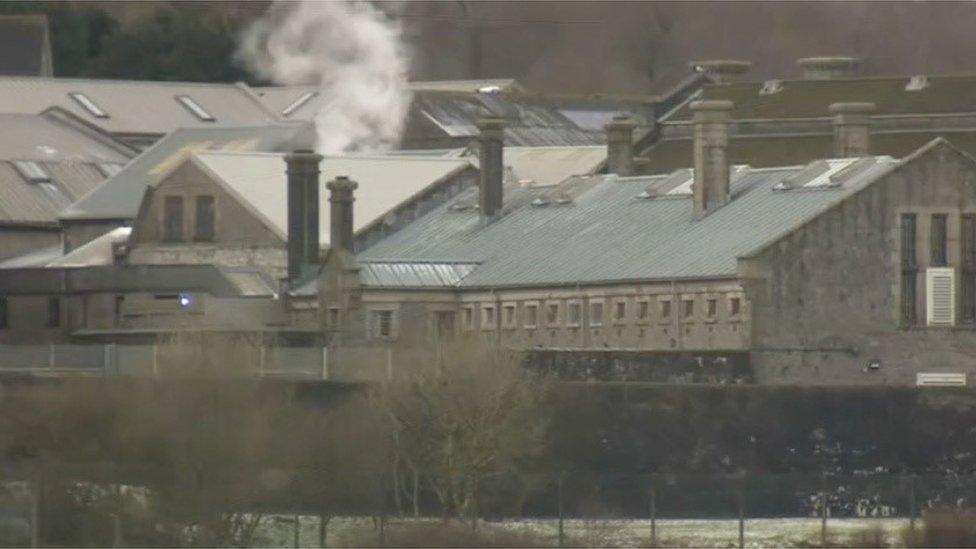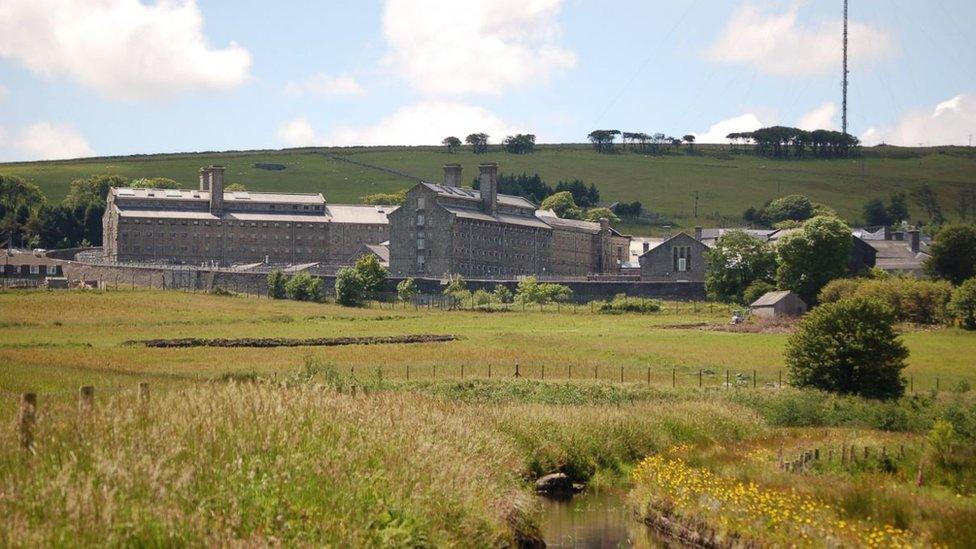Radon gas testing ongoing at Dartmoor Prison
- Published

Nearly 200 prisoners were moved from the jail in February after tests revealed higher-than-normal levels of the radioactive gas
Testing is continuing at Dartmoor Prison after high levels of radon gas were detected.
Nearly 200 prisoners were moved from the jail in February after tests revealed higher-than-normal levels of the radioactive gas.
Prolonged exposure can cause illness and regular testing is conducted in some buildings.
A Prison Service spokesperson confirmed testing was still taking place.
Radon is an odourless radioactive gas formed by decaying uranium found in rocks and soils.
Sarah Rigby, the regional spokesperson for the Prison Officers Association (POA), said testing was ongoing "in many areas".
She said it was carried out "over a period of time as the radon readings cannot just be taken once".

A map showing radon levels in England. The darker the colour, the greater the chance of a higher level
The POA said it had a system for members to record any potential exposure and they were advised to tell their doctors.
The Radon Council, which advocates for radon protection, welcomed the move in February to relocate prisoners.
"Radon is a hazard in many homes and workplaces," it said.
"Breathing in radon is the second-largest cause of lung cancer in the UK resulting in over 1,000 fatal cancers per year.
"However, radon hazards are simple and cheap to measure and relatively easy to address if levels are high."
'Elevated radon levels'
Justice Minister Edward Argar said last month radon levels were being "closely monitored" at Dartmoor Prison.
"Further specialist advice has been commissioned following the recent identification of elevated radon levels in some accommodation areas of the prison," he said.
"We are closely monitoring radon levels on site and taking appropriate steps to ensure the safety of staff and prisoners."
The Prison Service previously said there were no safety concerns for staff or prisoners remaining at the prison.

Follow BBC Devon on X (formerly Twitter), external, Facebook, external and Instagram, external. Send your story ideas to spotlight@bbc.co.uk, external.
Related topics
- Published27 February 2024
